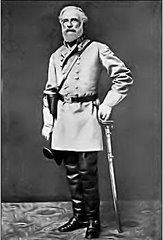The following is a paper I wrote for economics class this year.
Basic Economics
April 18, 2008
Ryan Hampton
Question # 7
Do American companies exploit foreign workers buy paying lower wages to them than what they pay in the U.S.? Should the U.S. Federal Government pass legislation on this “exploitation?”
Many people today believe that American businessmen are evil. They want nothing more than a profit. They could not care less about moral virtues or “fair” trade. For an example, many people criticize Wal-Mart’s success because they “underpay” their employees, and take away the small businessman’s opportunity to succeed. Many people complain to the oil companies for “price gauging” the consumers. Along with all of this, many people complain at any typical American company for their policy on hiring any foreign work.
The arguments for all of these complaints come from little understanding of economics. People want minimum wage to help the poor, when in reality, it exploits the poor from work. People want regulations on foreign trade and work to help people at home, to help the home nation’s wealth, and to “protect” over-seas workers. Often, the reversal of their goals is met. The people at home and abroad are exploited because of government regulations. Government regulations simply do not work.
It is true that foreign workers generally work for less pay than workers at home do. Many Mexicans who come to the United States get jobs that pay much less than the average American is willing to work for. Some people complain that our businessmen are hurting the foreign workers by not paying them enough. Some people complain that businessmen are hurting American’s because the foreign worker takes away the American job. However neither argument would hold up in an economic courtroom.
People easily look at the negative side of things when it comes to free market economics, and look to the positive side of things in a government regulated economy. It is natural, because the “seen” effects are noticed first, and often, the seen effect go to support a government regulated economy. But we must look at the whole picture – all groups of people, for a long amount of time, not just one group of people for a short amount of time. Consider no laws on trade – no laws saying that a businessman must pay his foreign employees the same as he pays his native employees. Sure, the foreign workers may get some of the jobs that the American’s lost. Sure, they may not make as much money at first. But American businesses can expand more rapidly by hiring people for less money – creating more jobs in the long run. Meanwhile, the foreign workers can gain job experience and find another job that pays more money.
Yet despite the common sense of economics, many in today’s political arena fail to see it that way. CNN News anchor Lou Dobbs believes in this “exporting” of jobs, and says it is a result of “corporate greed.” But is the government going to put a law against this “greed?” If the government gets to outlaw greed, then they get to decide what greed is. Often times the government calls something greed that really isn’t greed, such as simply wanting to make a profit to support a family. All this does is further invite the government into your home.
Exporting jobs also does good things for the consumer. It saves them money! If a company gets cheap labor, they have more freedom to charge lower prices for a product to knock other companies out of business, or force them to drive their prices lower. Think of who benefits: the business benefit by buying cheaper labor; the consumers benefit in buying cheaper products; and the workers benefit by getting a job. The American workers will benefit in the long run as well, by paying less for products, and finding a job at an expanded company who “exported” the jobs overseas.
The problem with much flawed economic thought comes from the fact that people look to the seen effects and utterly ignore the unseen effects, that are just as real. They look at the glass half-empty. There are no side effects to any economic plan, for the good or bad. Fact-twisting politicians spoon-feed gullible Americans into believing lies.
Without government intervention, foreign workers still get paid a market wage. It could be that their market wage for a particular job is lower than that in America, but that does not make it immoral or illegal to higher them. Making laws against hiring over-seas workers is the immoral act. Basically laws forcing businesses to pay the same amount on over-seas workers is creating an artificial minimum wage overseas, which is turning their economy into ours. Why should the government try to make another nation’s economy like our own, especially when our economy has enough problems of its own? That is immoral.
Making laws against hiring over-seas workers for lower wages would obviously make prices go up, because workers at home would have to pay more money for labor. These laws would also probably force higher taxes, because it is another law that has to be passed, and, at least theoretically, enforced. Law enforcement requires someone working to enforce the law, which is much of the purpose of taxes. Of course, this is another reason making laws would be immoral and not wise, not to mention the fact that they are unconstitutional.
So why do many people including our politicians advocate so much government intervention in overseas working? Are they misguided? Are they greedy and power hungry? Is it somewhere in between, or somewhat of both? We really can’t tell if they are just hypocritical or just honestly misguided, but nonetheless it is a mistake that they make.
Often it comes in the name of a “favorable balance of trade.” Supposedly just giving American’s the jobs would help our economy. But we have already seen that forcing this would increase prices and taxes, cut jobs from those overseas, and possibly in the long-run even take away our own jobs at home. But supposedly, this would keep more jobs at home, and therefore keep more money at home. But that again is a fallacy of economics. Even if we did bring in more money in our nation, it would not help, because it would simply cause inflation. It seems that our leaders who make or call for these stupid regulations are either hypocritical or severely misguided.
In the end, nothing good would come from passing laws against cheap labor over-seas. If a law were passed, it would be very hard to define and uphold. How could someone define what too low of a wage was? Since it is hard to define and uphold, it would require all the more taxes and intrusion into your personal life and the economy.
Our taxes would be raised, our prices would go up. Our businesses would fail to expand into bigger businesses creating bigger and better things and more jobs. Those over-seas would not get the jobs that may have had without government interference. Nothing good would come from these rules and regulations.
However we would see good come from the government getting out of business affairs and international marketing. It is the government’s job to protect our liberties, which may include protecting the border from any enemies we may have abroad. But that does not mean that they must cut off any contact with any foreign nation, or pass laws keeping the people from having contact with foreigners. Government restrictions hinder economic growth. A free market would give us economic growth, and allow fair trades to take place, at home, or abroad.
What do you think?
God bless America
Pray for our Troops
April 18, 2008
Ryan Hampton
Subscribe to:
Post Comments (Atom)










No comments:
Post a Comment